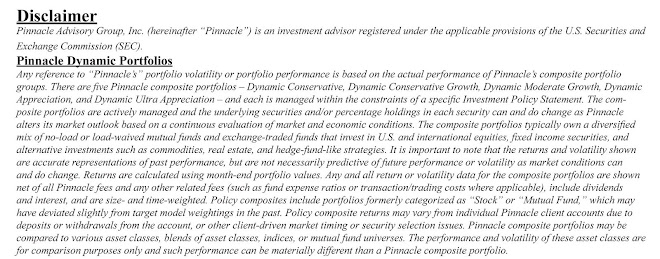Ken mentioned the “January Effect” in a recent blog post, and I thought I’d expand up on that a little today. The January Effect is a stock market phenomenon that derives from studies showing that the market’s performance in January might have implications for full-year performance. That is, according to the January Effect, if stocks are higher in the month of January, then stocks will also finish the full year higher, and vice versa – if January is a down month, the full year should finish lower, too. Jim Stack at InvesTech Research calculates that this has held true 71% of the time from 1938-2009, which is fairly impressive. Unfortunately, as far as I know, it implies nothing about magnitude – only direction.
Stocks have had a rough start to 2010 as the S&P 500 Index lost -3.5% in January. So, should investors simply pack it in and wait for 2011? We don’t think so. First of all, the January Effect isn't perfect. In fact, it's had some bad “misses” in just the past decade – in 2000, stocks were up 3.5% in January but ended the year down -16%; in 2003, stocks were down -2.7% to start the year but finished 30% higher; and just last year stocks lost -8.6% in January but ended the year 35% higher. Secondly, we put far more emphasis on what’s happening with the economy, earnings, valuation, technical indicators, etc, in our process.
Needless to say, we find these types of studies interesting, but they don’t have much bearing on our investment strategy. With the economy continuing to recover here and fourth quarter earnings reports handily outpacing analysts’ forecasts, we aren’t ready to give up on 2010 just yet.

